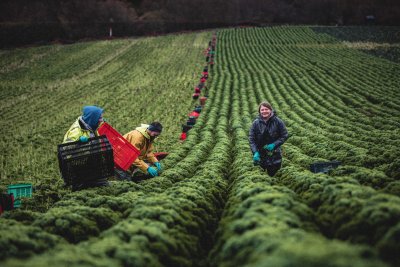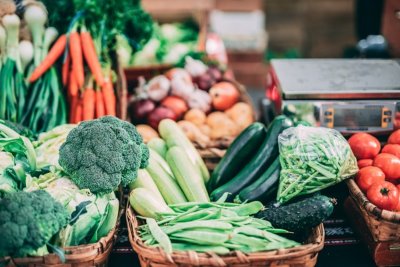These are frustrating times for marine conservationists and the fishing industry as the Great Repeal Bill threatens to overturn what progress has already been made to preserve our fish stocks. As Andrew Charles from the Scottish Seafood Processors Federation recently said on BBC Radio 4’s Costing the Earth programme, ‘“We are leaving (the common fisheries policy) just at the point that it is working.” [1]
We need solid fisheries policies in manifestos and a Sustainable Fisheries Act in the next two years. Here, I make the case for developing a clear plan for a sustainable fishing policy (which could add £1bn to the UK economy), and why we need a guarantee that EU laws will be changed only with proper democratic and scientific review and oversight.
What does the Great Repeal Bill mean for fisheries?
The Great Repeal Bill White Paper (released 30th March) confirmed that the EU Common Fisheries Policy will be copied and pasted into UK law when we leave the EU in March 2019, along with ‘the whole body of existing EU environmental law’[2]. This is a promising signal that the UK will continue to use the EU systems, established with UK input and agreement, that have seen stocks begin to recover [3].
Unfortunately, this is not nearly enough to secure the precarious future of UK fishing. There are worrying proposals in the White Paper (to be confirmed in the Great Repeal Bill) that, if passed, would allow Government to unilaterally change or dismantle these transferred laws without proper democratic scrutiny or oversight, before March 2019, in a number of circumstances. The two that we are most concerned by are:
These are some of the key policies I believe are at risk, and how the different parties might stand on them:
- Funding for transitioning to sustainable fishing ,including providing new or improved fishing gear, monitoring equipment and on-land facilities such as docks and processing sites. No party has yet guaranteed to continue such vital funding.
- EU environmental directives including the Habitats Directive that protects dolphins, porpoises, seals and otters in our marine environment. This was described in March by Tory MP-backed ‘cut the red tape’ campaign as one of the ‘directives we'll be glad to see the back of’ [8], but should be protected as part of Labour’s ’10 pledges to transform Britain’ [9]
- Measures to reduce climate change and the trade in illegally caught wildlife. The current government recently told departments to ‘scale down’ efforts in these areas in order to forge new trade deals with Africa and Latin America, a worrying insight into their plans for Brexit deals to come and potentially a disaster for endangered marine species like Bluefin tuna and sharks [10].
- Important individual rights and protections, such as the right of fishers and other citizens to access environmental data, the right to be consulted, and the right to have access to justice and seek redress. These principles are contained in the Aarhus Convention [11]; and we have no confirmation that this will be transposed into UK law, or retained when we leave the EU.
- The commitment to the discard ban and restoring fish stocks to sustainable levels – a precious 2015 conservative party manifesto pledge [12]. The snap election will see the Tories stand with a new manifesto and no formal assurances have been given that this will be in it. For Labour, it is unclear whether this policy will come within the definition of EU Environmental law to be saved.
- Good EU Fishing regulations, especially the requirement to allocate fishing rights on environmental and social criteria. A key part of the Common Fisheries Policy fought for by small scale fisheries and NGOs. Government has faced a barrage of criticism, and has even been taken to court [13], over not implementing this EU policy fully. It would be a huge concern if it was removed all together. EU law also currently bans bottom trawling, ensures UK boats fish sustainably in international waters, and requires clear consumer labelling on fish packaging. It would be incredibly damaging to fishing stocks, and ultimately fishing livelihoods, to lose these protections.
What does the next Government need to do?
We need a firm commitment in the manifestos of all the major political parties that our future fishing policy will be governed by the robust sustainability principles below. Healthy fish stocks and marine environments could mean an extra £1 billion for the UK economy [14]; but marine-wrecking policies could destroy that opportunity, as well as our precious ecosystems, forever.
A new Sustainable Fisheries Act and Good Food Act
After 8 June the new UK government must publish a new Sustainable Fisheries Act, and incorporate marine sustainability issues fully into the widely called for new Good Food Act [15].
A watertight guarantee that changes to fishing policy will have democratic and scientific scrutiny
We must get a guarantee from government that any changes that go beyond simple technical tweaks must be open to due process. That means proper scientific scrutiny, public consultation and full open and democratic process in Parliament, including a full debate and a vote by MPs. Anything less would risk endangering our marine life and already much-depleted fishing industry.
What you can do:
Every UK political party needs to set out its commitment to sustainable fisheries, to ensure that our children and grandchildren can enjoy fish and chips in thriving coastal communities, long into the future.
Ask your MP to stand up for sustainable fishing in the June 2017 General Election
Note: At time of writing, it is unclear how legislation and standards will apply in the Devolved Administrations after the UK’s departure from the EU but any arrangement must be mindful of the need for shared management of common resources like fish and shellfish between the Devolved Administrations.
What a Sustainable Fisheries Act could look like
Fishing communities have been promised a better deal from Brexit. This is a golden opportunity to create a bold and aspirational Sustainable Fisheries Act to ensure fishing livelihoods and the marine environment are better when we leave the EU:
1. The UK must continue to collaborate with the EU Common Fisheries Policy on the following:
- All states fishing within scientifically-established catch limits, to ensure all shared stocks are above sustainable levels (Maximum Sustainable Yield) by 2020
- Sharing catch data and other scientific information with other states
2. Protect the following EU legislation after 2019:
- The discarding ban, as well as the provisions for its implementation
- Ban on deep-sea (over 800m) bottom trawling and assurance of sustainable fishing by UK boats in international waters
- Fish packaging labelling regulations
- The commitment to providing funding for the transition to sustainable fishing
3. A commitment to better support the small-scale inshore UK fleet by:
- Setting out clear environmental and social criteria for allocating shares of fishing rights (quota). Award more quota for boats that adopt sustainable fishing gear, avoid sensitive zones, take part in scientific monitoring and achieve certified sustainable status.
- Get a solid understanding of the stock status for the commercially-fished UK species that aren’t covered by the EU – take a deep breath – many are not in a good shape and this has nothing to do with the EU. Ensure these depleted stocks rebuild – if Brexit doesn’t guarantee a greater share of EU quota, we can guarantee that our own stocks improve.
4. A commitment to supporting the industry by:
- Supporting fisheries financially through certification (other countries do this, and it would greatly help the industry achieve greater prices for catches)
- Encouraging sustainability with a legally-binding commitment to buying fish from healthy and verifiably sustainable UK stocks for food in the public sector
- Encouraging sustainability with a legally-binding requirement for large food buyers – supermarkets and large foodservice companies – to report transparently on the quantity, source and sustainability status of all the fish and seafood they buy
Notes:
[1] Costing the Earth broadcast Tue 4 Apr 2017 http://www.bbc.co.uk/programmes/b08kv4bf
http://www.independent.co.uk/news/uk/politics/uk-government-to-scale-down-climate-change-and-illegal-wildlife-measure-a7674706.html
[11] The Aarhus Convention http://ec.europa.eu/environment/aarhus/
[12] 2015 Conservative Party manifesto is here – see page 23 https://s3-eu-west-1.amazonaws.com/manifesto2015/ConservativeManifesto2015.pdf
[13] http://www.greenpeace.org.uk/blog/oceans/greenpeace-champions-small-boats-court-battle-fairer-quotas-20130501
• 2,052,639 tonnes of additional fish per year, enough to meet the annual demand of 89.2 million EU citizens
• €1,565 million additional gross revenues per year
• €824 million additional net profits per year
• between 20,362 and 64,092 new jobs
• €8,273 in additional fishing wages each year.
Good Food Trade Campaign: Campaigning for good trade that benefits people and the planet at home and overseas.








